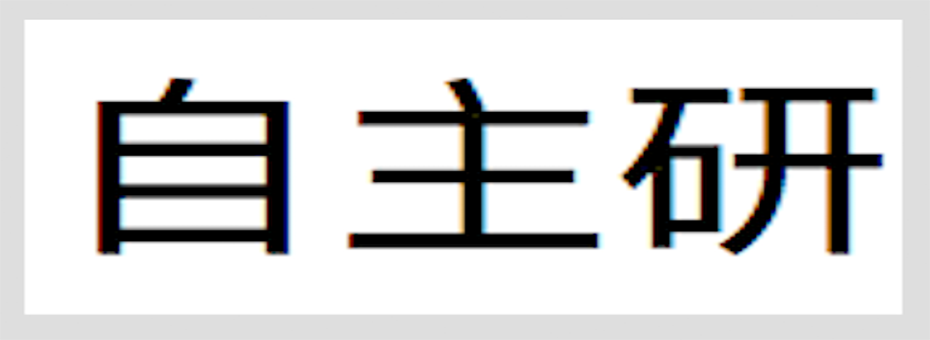In his recent post The Cascade of Hoshin, Jim Womack referred to a problem solving structure we saw at Toyota Motor Kyushu (TMK) called jishuken. Yes, another Japanese word. Actually, as best as I can tell, it’s not Japanese at all. “Jishuken” is unique to Toyota’s lexicon.
The banner above shares the word as it is written in kanji. The first two characters (jishu) translate approximately to autonomy or self-reliance; the final one (ken) means to polish or sharpen. Thus, the word roughly translates to “self-sharpen”. Jishuken is Toyota’s method of sharpening rough-cut workers into capable problem solvers.
Naturally, jishuken begins with a problem to solve. In the case TMK walked us through, the problem concerned capacity. TMK was projecting a capacity constraint due to increased sales from the launch of a new Lexus model. The problem was clear: the team had to increase stamping capacity from X units to Y units. Rather than buy more equipment, TMK would increase productivity of existing equipment. A problem breakdown analysis led them to attack changeover time on a particular press.
Two teams were formed: one to address internal setup time and the other to address inspection time. Each team had four members led by a chief, which were collectively overseen by three tiers of leadership. Additionally, a resource from the internal TPS office was assigned to each team. Importantly, the eight members and two chiefs actually did the day-to-day work of stamping parts. This gets at the ‘jishu’ (self-reliance) in ‘jishuken’. They were primarily responsible for solving the capacity problem, not the internal TPS office. The TPS resources were available for coaching through particularly complex technical challenges, but nothing more.
Each team had a 3-month plan to solve their respective problem, and each month had a clearly defined goal. This was not a kaizen blitz executed on overtime or on a holiday. TMK was taking a methodical approach to not just solving a capacity problem but developing the people who do the work of stamping. Each month ended in a report out, which leadership attended. Their job was to ask thoughtful questions intended to sharpen thinking.
The display of facts was overwhelming. The teams had reams of analysis tracking every motion and second related to the existing changeover process. It left the impression that lying or guessing was not an option. Only the truth could survive the environment because, at some point, someone would ask, “How do you know this?” And only measurable facts would suffice for an answer.
Similarly, the teams had reams of countermeasures intended to improve the process. Even as an outside observer unfamiliar with the organization, I could understand how a 7-second reduction in walk time served TMK’s goal of launching a new Lexus model. And that’s what these teams were fighting for: seconds and millimeters – for three months!
In the end, the teams hit their goals related to capacity. The teams were also tracking an entirely separate set of goals related to people development. Each team member was being measured across seventy metrics related to stamping operations and kaizen of stamping operations. This gets at the ken in ‘jishuken’. TMK had devised a methodology for tracking the sharpness of its workers and managers’ problem solving skills.
As an aside, it’s worth mentioning that Toyota has been working on setup reduction for fifty years. These teams were challenged to build on fifty years of know-how by scraping seconds off a highly capable setup process.
Undoubtedly jishuken is really hard. It is a wet stone that grinds a worker’s’ brain down to a sharp point. And that grinding must hurt. But the management system founded on careful mentorship makes it endurable.






